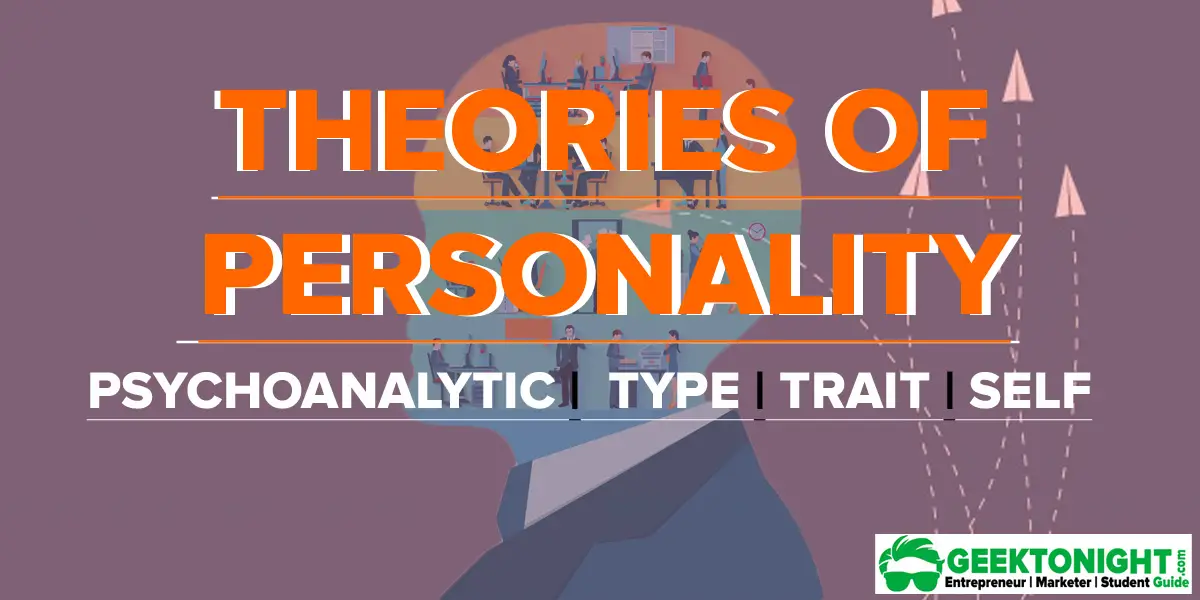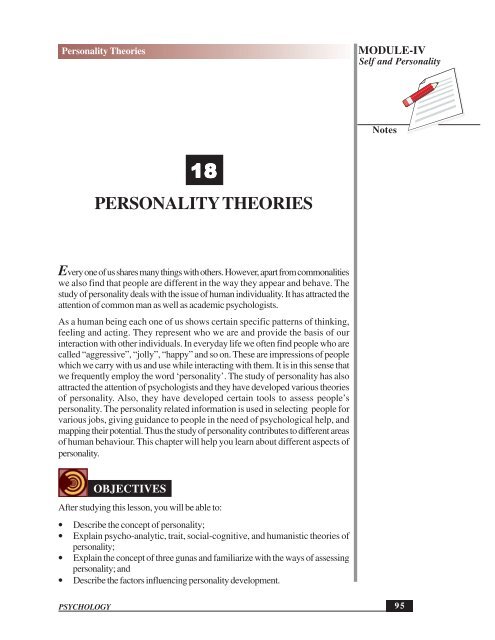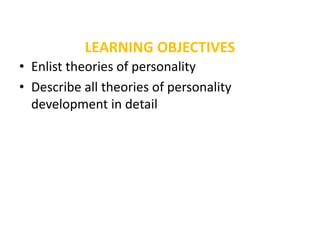Personality development refers to the psychological process through which individuals develop their unique characteristics and behaviors that define who they are. There are several theories that have been proposed to explain how personality develops, including psychoanalytic, trait, humanistic, and social learning theories.
One of the most well-known theories of personality development is the psychoanalytic theory, which was developed by Sigmund Freud. According to this theory, personality is formed through the interactions between the unconscious mind, the ego, and the super ego. The unconscious mind is made up of repressed desires, thoughts, and memories that are not available to conscious awareness. The ego is the part of the psyche that mediates between the unconscious mind and the outside world, and the super ego is the moral component of the psyche that helps to control the impulses of the ego.
Freud believed that personality development occurs through a series of stages, beginning in infancy and continuing throughout the lifespan. During the oral stage, which occurs in the first year of life, the infant's primary source of pleasure is through sucking and biting. In the anal stage, which occurs between the ages of one and three, the child learns to control their bowel and bladder movements and develops a sense of independence. During the phallic stage, which occurs between the ages of three and six, the child becomes interested in their own genitalia and forms a sexual identity. In the latent stage, which occurs between the ages of six and puberty, the child's sexual and aggressive impulses are repressed, and they begin to develop social relationships. Finally, in the genital stage, which occurs during puberty and beyond, the individual becomes sexually mature and develops a stronger sense of identity.
Another theory of personality development is the trait theory, which suggests that personality is made up of a set of enduring characteristics that are consistent across different situations. According to this theory, people have certain inherent traits that influence their behavior and personality, such as extraversion, agreeableness, conscientiousness, neuroticism, and openness to experience. Trait theorists believe that these traits are relatively stable over time and that they are influenced by both genetics and environmental factors.
The humanistic theory of personality development, developed by Abraham Maslow and Carl Rogers, emphasizes the individual's inherent drive towards self-actualization, or the realization of one's full potential. According to this theory, individuals are motivated by a hierarchy of needs, starting with basic physiological needs and moving up to higher levels of self-actualization. This theory emphasizes the importance of personal growth and self-awareness in the development of a healthy personality.
Finally, the social learning theory of personality development suggests that individuals learn and develop their personality through their interactions with others and their environment. According to this theory, people learn new behaviors and personality traits through reinforcement, punishment, and observation. For example, a child who is consistently rewarded for being kind and helpful is more likely to develop a kind and helpful personality, while a child who is consistently punished for aggressive behavior is less likely to exhibit aggressive behaviors in the future.
In conclusion, there are several different theories that have been proposed to explain how personality develops. Each of these theories offers a different perspective on the psychological processes involved in personality development, and they all have their own strengths and limitations. Ultimately, the development of personality is a complex and multifaceted process that is influenced by a variety of factors, including genetics, the environment, and individual experiences.







:max_bytes(150000):strip_icc()/personality-psychology-study-guide-2795699_final-49889dfa10424121bfee8cef9ebb3e92.png)
